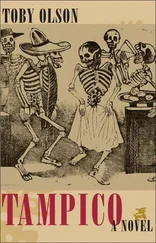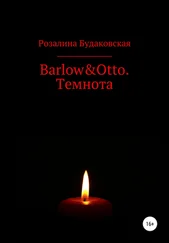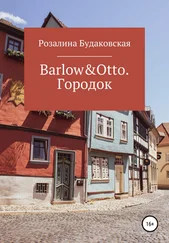But he was not done with the case that day, for work was not something that Vidot ever entirely left at the office. He lived and breathed and often dreamt about his cases until they were done. “My husband is a man of passion,” Adèle used to dryly joke with their friends. “Unfortunately, his passion is police work.” So, there in the kitchen, his thoughts now turned to the puzzle of Leon’s missing lover. Vidot did not judge the man too harshly for having a mistress. It occurred all too often in French society, it was as ordinary as the sliver of lemon rind that came with his morning espresso. But, in his opinion, it did signify a weak man and a dull mind. Any fool could seduce, but it took a true intellect to know and love his partner. Women, to Charles Vidot, were absolute and thrilling mysteries. They moved through the world as if a different gravity applied to them and answered to untranslatable calls of the body and soul. So many times, especially of late, Adèle had utterly befuddled him with her sudden moods and reactions to events. Tears would arrive and tempers would flare with no warning, vanishing again as if carried away by some unseen benevolent wind. He understood that these sorts of unpredictable mood changes often frustrated and shut lesser men down, sending them searching for other, seemingly more simple, beds; but to Vidot a woman’s riddles were nothing to run from, each was another enigma to be solved, another curious knot to untie. He knew he could never completely comprehend the wonder, the strangeness, that was his wife—how could one soul ever know another?—but he did completely love every small challenge that she gave him, every shadowed and mysterious moment she delivered. They may not have been as physically intimate as they once were, in fact lately she seemed even more distant from his touch, but that was fine; after all, they were not lusty schoolchildren. As far as Vidot was concerned, their union was a complete one, encompassing all the harmonies and inherent contradictions any relationship could hope to hold.
They sat at the table, held hands, and said their habitual small prayer of thanks. Charles opened a thick volume of the encyclopedia to a chapter on owls and read as he ate. He found himself quickly distracted by a description of this strange bird’s incredible powers of hearing (a high perched owl could detect the sounds of a tiny mouse moving beneath a foot of snow!) as Adèle slowly finished her food in silence. She never seemed to object when he worked at the supper table. In fact, it was how they spent many evenings. She was employed at the university library and would often bring him home books on subjects related to his cases. It made him happy to share his work with her, and he was always grateful for her thoughtful assistance and insights. To him, it was like they were one organism, different arms and legs carrying the two lobes of one great mind.
Adèle finally rose and began clearing the empty plates. “Perhaps the woman is also dead. They could have thrown her body in the river,” she said as she headed into the kitchen.
“No,” Charles said, looking up from his reading. “I am certain that Leon Vallet’s lover is very much alive. Not only were her dresser drawers cleaned out but also the bottom of her closet was completely bare. And a dead woman rarely takes all her shoes with her, however much she might like to.”
Zoya chose the hotel down the hill from Place Pigalle because it was two stories higher than the other buildings on the block. Also, it was inexpensive and the block it stood on, though busy, had none of the loud nightclubs or neon that filled the rest of the district. In the small, yellow-tiled lobby, the man working at the front desk was not wearing a suit or even a jacket, only a sleeveless white T-shirt with a pair of suspenders. He itched at himself as she signed the register.
“That’s not from bedbugs or fleas, I hope?” she said.
“No,” said the man with a self-conscious grin. “It’s only a little rash.”
She knew a simple myrrh cure for his ailment but she was not in a mood to be generous. “I need a room on the top floor if you can, one with a bath.”
“No problem,” he said. “The top floor is mostly empty because the elevator is broken. I only have one room up there with its own bath, but it is our most expensive.”
“ Quoi? The most expensive? With no elevator?”
The man shrugged. “It’s a big room. Lots of sunlight.”
“Fine, I’ll take it,” she said. “But I will need some assistance with my luggage when it arrives from the station. I hope that will not be a problem.”
The clerk smiled. “Not a problem for me. I’m off in ten minutes. The next fellow can take it up.”
She counted out franc notes to him as he explained that each room had a kitchenette with an electric coil, but that the only working phone in the building was behind the front desk. “We do not let guests use it unless it is an emergency. Otherwise, there is a phone booth down the hill on the corner. They sell the jetons for it down at the tabac.”
When she reached her room she found it was quite spacious. She ran the faucet. The pipes rattled and banged but the water came out clean. She opened the windows and, reaching into her bag, took out a small stub of a red candle. After lighting it, she removed a few small striped feathers from her pocket and placed them on the outside of the window. She dripped the candle wax onto their thin quills to fasten them to the sill, pressing them into place with a centime. The birds would find her, maybe not tonight, but soon.
From another pocket she took a piece of chalk and wrote a row of small words on the inside of the hotel room’s door. Then she filled the tub and took off her clothes.
A hot bath almost always made her recall the fierce, frigid cold that had, through the years, so often clenched its teeth into her bones. She had to be careful with memories. When they flooded her unexpectedly, triggered perhaps by something as slight as the scent of blooming dianthus or the sharp taste of anise, they could overwhelm and debilitate her. But it felt safe to recall those deathly days of ice and cold when she was tucked in a warm bath. It was as if, enshrouded and cloaked in the thick cloud of rising steam, the ever-hunting frost could not find her.
There had been five of them when they began their flight west from St. Petersburg. They had watched every train pull out of the Warsaw Station, the cars headed west toward the Balkans, packed full of deserting soldiers, all pale-faced and drunk with desperation, impure vodka, and the mighty relief of escape. The city’s spare horses were all gone—eaten or seized—and the handful of automobiles in the city had been taken too, commandeered by panicked priests and overflowing with the frightened remnants of their splintered congregations. Their faces stared out as they sped by, heading fast to the border in their stolen cars. Too tired to coax their passage, still exhausted from weeks of furiously wrought protective spells, the five women watched as all those in the city who could took flight, and then they followed, on foot, trailing the last vehicles’ sputtering black exhaust, steadfastly heading down the frozen roads toward nothing.
The first lost had been Mazza, a day into the journey, shot dead as they stole a pair of mares from a barn. Zoya had looked back when she heard the gun’s report and saw Mazza’s eye explode out in wild, crimson red. They had not slowed their pace and the woman’s body was left behind, lying crooked, facedown, with the snow staining scarlet around her as they galloped their new horses away.
Three days later, the hard-driven mares already dead, the women had been running across a frozen estuary when Lyda broke through, sinking with only half a gurgled shriek, the heavy hidden current hungrily gulping down her last gasp, her thick knit woolen clothes making the swallowing simple for the river. Again they did not pause—no one looked back and nothing was said. Any words spoken would only slow their momentum.
Читать дальше












